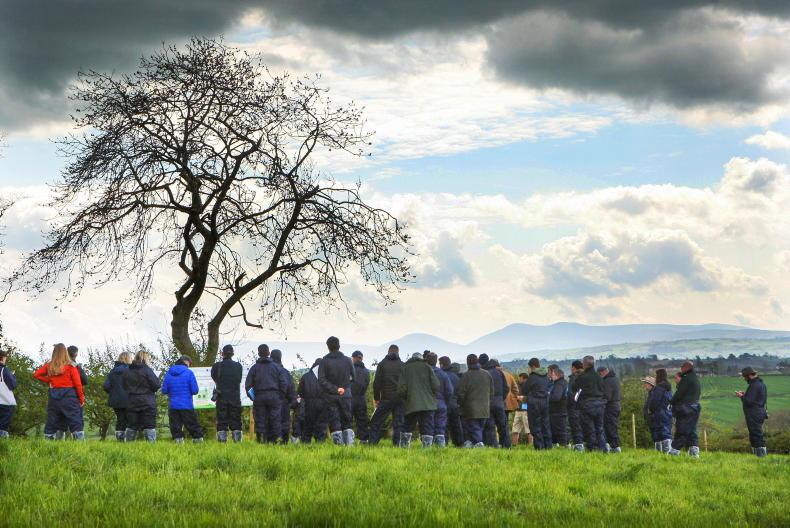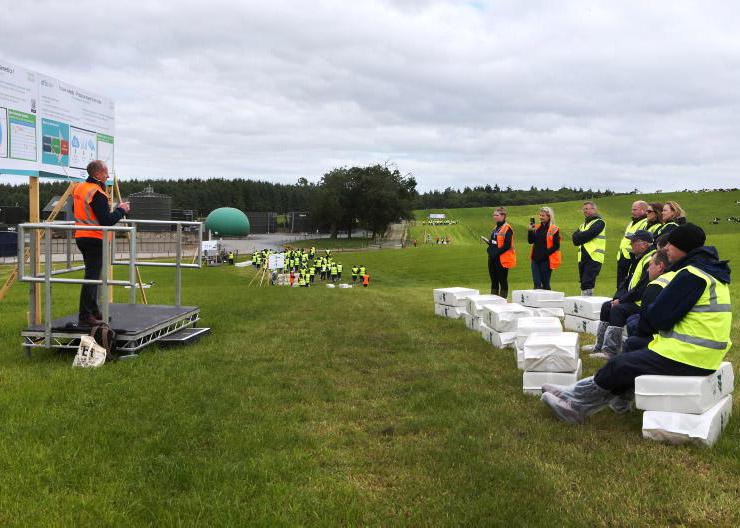It is understandable that for a lot of farmers the whole debate around climate change is a turn-off.
Many farming families give their whole life to the farm, work long hours, rarely take any time away, while being under constant pressure to produce food at, or below, the cost of production.
Meanwhile, others who might point to cattle and sheep as being a major cause of climate change continue to enjoy three foreign holidays per year and a throwaway lifestyle to keep up with the latest fashion trends. Those who continue to push an anti-farming agenda are simply helping to deflect from the real cause of climate change – the burning of fossil fuel.
But there is also a growing sense that the narrative around agriculture and greenhouse gas emissions is changing. The work done within the ARCZero project has highlighted the important role farms have in sequestering carbon, especially in our soils, with our grazing livestock playing a crucial role in facilitating that sequestration process.
In addition, as reported on p9, scientists have called out current measures of carbon footprint as being potentially misleading, given that these measures do not properly account for the short life span of methane, the main GHG coming from NI agriculture. In a stable national herd (like that in NI), methane released today is simply replacing in the atmosphere methane released 20 years ago.
It is a highly significant move, given the scientists represent all the leading academic institutions including Rothamsted Research, University of Oxford, Scotland’s Rural College, Harper Adams, University of Bristol, Cranfield University and AFBI.
None of this is easy to explain to the general public or national media, but as an industry we must keep working with science, adopting new technology and be open to doing things differently. But there is a clear path emerging for ruminant livestock in NI – we must all work together to grasp it with both hands.
Read more
Calculating net emissions on NI farms
Soils trump trees for carbon on Antrim farm
It is understandable that for a lot of farmers the whole debate around climate change is a turn-off.
Many farming families give their whole life to the farm, work long hours, rarely take any time away, while being under constant pressure to produce food at, or below, the cost of production.
Meanwhile, others who might point to cattle and sheep as being a major cause of climate change continue to enjoy three foreign holidays per year and a throwaway lifestyle to keep up with the latest fashion trends. Those who continue to push an anti-farming agenda are simply helping to deflect from the real cause of climate change – the burning of fossil fuel.
But there is also a growing sense that the narrative around agriculture and greenhouse gas emissions is changing. The work done within the ARCZero project has highlighted the important role farms have in sequestering carbon, especially in our soils, with our grazing livestock playing a crucial role in facilitating that sequestration process.
In addition, as reported on p9, scientists have called out current measures of carbon footprint as being potentially misleading, given that these measures do not properly account for the short life span of methane, the main GHG coming from NI agriculture. In a stable national herd (like that in NI), methane released today is simply replacing in the atmosphere methane released 20 years ago.
It is a highly significant move, given the scientists represent all the leading academic institutions including Rothamsted Research, University of Oxford, Scotland’s Rural College, Harper Adams, University of Bristol, Cranfield University and AFBI.
None of this is easy to explain to the general public or national media, but as an industry we must keep working with science, adopting new technology and be open to doing things differently. But there is a clear path emerging for ruminant livestock in NI – we must all work together to grasp it with both hands.
Read more
Calculating net emissions on NI farms
Soils trump trees for carbon on Antrim farm










SHARING OPTIONS